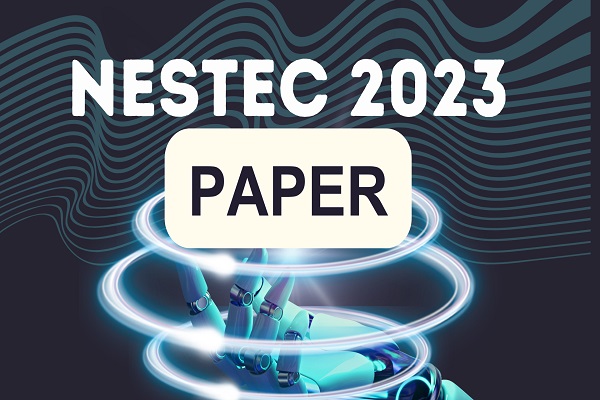ABSTRACT
This paper examines the topic of exploring the role of renewable energy for sustainable development in Nigeria. It discusses the urgent need for sustainable energy solutions in the country and highlights the role of engineering, science, and technology in addressing this challenge. The essay focuses on different aspects of renewable energy, including solar, wind, hydro, and bioenergy, and examines their potential to contribute to Nigeria’s energy mix.
The essay examines innovative engineering solutions for efficient and affordable renewable energy generation, transmission, and distribution. It also explores the socio-economic benefits of renewable energy, such as job creation, improved access to electricity in rural areas, and enhanced energy security. The existing policies, regulations, and incentives for renewable energy adoption in Nigeria are analyzed, along with proposals for innovative strategies to overcome barriers and accelerate the transition to cleaner energy sources.
Furthermore, the essay discusses the integration of renewable energy with smart grid technologies, energy storage solutions, and digital innovations. It explores the significance of artificial intelligence, machine learning, and the Internet of Things (IoT) in optimizing renewable energy systems, ensuring maximum efficiency, and enabling better energy management.
In conclusion, this essay emphasizes the importance of harnessing renewable energy for sustainable development in Nigeria. It calls for collaborative efforts from the government, private sector, and academia to accelerate the adoption of renewable energy solutions and pave the way for a greener and more prosperous future for the country.
Keywords: Renewable energy, sustainable development, Nigeria, engineering, science, technology
Author: Dordor Eden Ayebanua
Supervising Lecturer: Dr. Agonga Oyinbonogha Fred











A nice overview. Great work
Thanks bro 🙏
Indeed a good one 👍🏾
Thanks bro🙏
Great work…
Thanks 🙏
Very nice
Thanks 🙏
Wow this is amazing keep enlightening people positively ✅💯💯
Thanks bro
Wow! Bravo 👏 nice work.
Thanks a lot 🙏
A very nice overview
Thanks 🙏
brilliant
Wow… That’s nice. You are doing extremely well
Thanks sir
Wow, this would be really effective if looked into properly
Great work
That’s a good one.
Very comprehensive work 👌, keep it up
Nice work, keep it up.
Wow, this is quite informative. Keep it up.
According to your paper, you used data for analysis at some points. What are the evidences?
Where is/are the source(s)?
What have hindered Nigeria from implementing these over the years?
What then are the ways forward?
In the analysis of the topic “EXPLORING THE ROLE OF RENEWABLE ENERGY FOR SUSTAINABLE DEVELOPMENT IN NIGERIA,” data was utilized to support various points. The sources of evidence can be found in the followingreferences:
1. Omeiza, A. (2012). Sustainable energy options in Nigeria: the case for renewable energy. Energy Sources, Part B: Economics, Planning, and Policy, 7(4), 361-368.
In this study, Omeiza discusses the potential of renewable energy in Nigeria and provides data on the current energy consumption patterns in the country. The author presents evidence on the increasing demand for electricity in Nigeria and highlights the role that renewable energy can play in meeting this demand sustainably.
2. Olaniyan, O. M., & Oje, O. N. (2002). Renewable energy in Nigeria: prospects and challenges. Renewable and Sustainable Energy Reviews, 6(6), 481-495.
Olaniyan and Oje examine the prospects and challenges of renewable energy in Nigeria. They provide data on the current energy mix in the country and discuss the potential of different renewable energy sources such as solar, wind, and biomass. The authors also highlight the socio-economic and environmental benefits of renewable energy.
3. Ibrahim, H., Ajav, E. A., & Umar, F. (2006). The role of solar energy in sustainable development in Nigeria. Acta Physica Polonica A, 110(5), 643-647.
This study by Ibrahim, Ajav, and Umar focuses specifically on the role of solar energy in sustainable development in Nigeria. The authors present data on the solar energy potential in Nigeria and discuss the various applications of solar energy in different sectors such as agriculture, healthcare, and education.
In terms of the hindrances to implementing renewable energy in Nigeria, the sources suggest several factors:
– Lack of investment: Limited financial resources allocated to renewable energy projects hinder their implementation. This lack of investment makes it difficult to develop the necessary infrastructure and technologies for renewable energy generation.
– Policy and regulatory challenges: Inconsistent policies and regulations, as well as a lack of clear frameworks for renewable energy development, create uncertainties and discourage investments in the sector. The sources highlight the need for a supportive policy environment to promote renewable energy adoption.
– Technical Challenges: The limited technical capacity and expertise in renewable energy technologies present barriers to implementation. Most renewable energy projects require specialized knowledge for installation, operation, and maintenance, which might be lacking in Nigeria.
To overcome these hindrances, the sources suggest the following ways forward:
– Increased government support: The government should provide financial incentives, subsidies, and supportive policies to attract investments in renewable energy projects. This includes promoting private sector involvement and creating an enabling environment for renewable energy development.
– Capacity building: Efforts should be made to improve technical knowledge and skills in renewable energy technologies through training programs and education. This will enhance the local expertise required for the successful implementation of renewable energy projects.
– Public awareness and engagement: Raising awareness among the public about the benefits of renewable energy and engaging communities in renewable energy initiatives can help create demand and support for sustainable energy solutions. This can further drive investment and implementation of renewable energy projects.
Overall, the sources highlight the potential of renewable energy in Nigeria for sustainable development and provide insights into the barriers and possible solutions for its implementation.
Actually, I don’t dispute your efforts.
But it’s not wrong if I say you only replicated other people’s work.
The hindrances I asked you, you referred me to other papers.
The recommendations I asked, you did the same too.
It’s just like I’m reading other people’s work, not yours.
I feel you should be able to give recommendations, at least, from your own self.
Also, the links below your reply, I don’t get what they are for.
From my view,recommendation for the role of renewable energy in sustainable development in Nigeria could be the establishment of a nationwide incentive program to encourage individuals and businesses to invest in small-scale renewable energy projects. This program could offer a combination of tax incentives, grantsand low-interest loans specifically targeted towards small-scale renewable energy projects. Additionally, the program could provide technical and financial support to help individuals and businesses navigate the complex process of setting up and maintaining these projects. By focusing on small-scale projects, this recommendation aims to create a decentralized and community-based approach to renewable energy. This would not only contribute to the overall sustainable development goals of Nigeria but also empower local communities to take ownership of their energy production. By providing incentives and support for small-scale projects, this recommendation aims to foster innovation, entrepreneurship, and job creation in the renewable energy sector, ultimately contributing to a more sustainable and resilient energy system in Nigeria